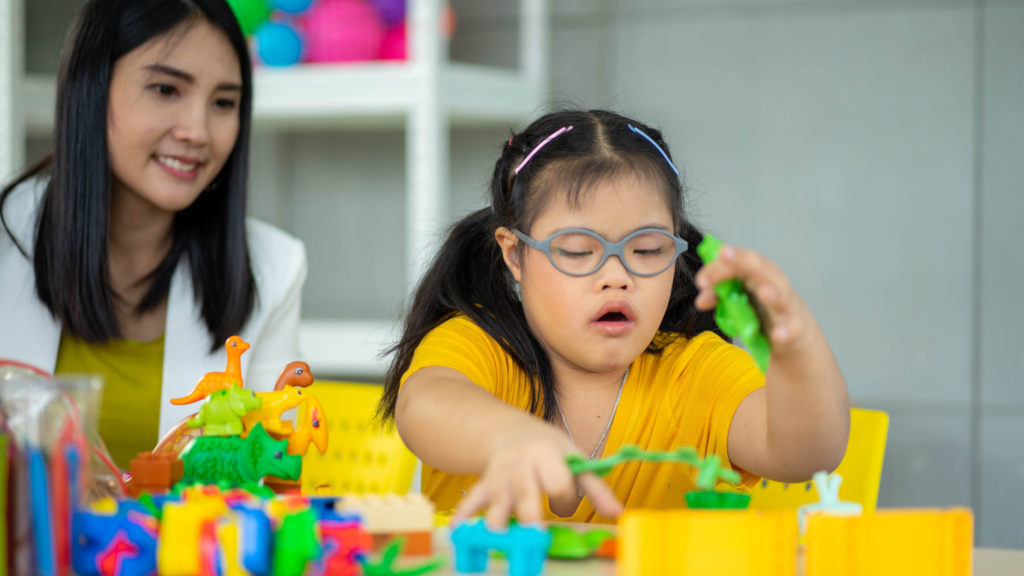Becoming a parent changes your life in ways you can’t imagine, but raising a child with special needs transforms you in ways you never saw coming. When I first learned about my child’s diagnosis, I felt a whirlwind of emotions—fear, uncertainty, and even guilt. But over time, those feelings turned into resilience, love, and an unshakable determination to give my child the best life possible.
Discovering The Diagnosis
When parenting a child with special needs, the road to a diagnosis often begins with subtle, yet noticeable differences. My journey started with questions and countless moments of doubt, leading to an eventual understanding of my child’s unique needs.
Recognizing The Early Signs
I noticed early developmental differences, like delayed speech and difficulty maintaining eye contact. Other behaviors, such as heightened sensitivity to noise and repetitive actions, painted a clearer picture that something needed attention. These signs, though small at first, became more significant as my child grew, making me realize that professional guidance was necessary.
Seeking Professional Help
I consulted with pediatricians, who recommended developmental screenings. From there, referrals to specialists like child psychologists and therapists provided deeper insights. The diagnostic process included:
- assessments
- medical tests
- detailed observations
Each step involved sharing my child’s behaviors, challenges, and milestones to guide experts toward an accurate diagnosis.
Understanding The Challenges
The diagnosis revealed not only my child’s condition but also the complexity of their individual needs. Navigating therapies, educational plans, and support services required ongoing effort. I learned about sensory processing issues, social struggles, and communication barriers that impacted daily life. Each challenge highlighted the importance of:
- patience
- adaptability
- consistent advocacy
in ensuring my child received the care they deserved.
Navigating Daily Life

Daily life with a child with special needs involves balancing unique responsibilities while fostering a supportive environment. Adapting to these circumstances requires focus, resourcefulness, and emotional resilience.
Developing A Routine
Establishing consistency has become essential for my child’s well-being. Routines help create a sense of security and predictability, reducing anxiety and easing transitions. I design our schedule to balance therapy sessions, school commitments, and rest periods. For example, mornings start with structured activities like visual schedules, while afternoons focus on interactive play to develop social skills. Adjustments are necessary, but maintaining a core structure minimizes disruptions to my child’s progress.
Finding The Right Support System
- Collaborating with the right professionals and connecting with other parents has been invaluable for navigating challenges.
- I reached out to therapists, teachers, and specialists trained in developmental needs to create a care team.
- Attending support groups introduced me to others facing similar hurdles, offering not only practical advice but also emotional solidarity.
- Another parent suggested local resources for sensory-friendly activities, which have been instrumental in enhancing my child’s experiences.
Coping With Emotional Struggles
Managing daily stress while advocating for my child has been emotionally demanding. I’ve learned to prioritize self-care by taking moments to recharge, even if brief. Engaging in mindfulness exercises and journaling about small victories helps me stay grounded. When I feel overwhelmed, I remind myself that every challenge faced fosters growth—for both me and my child. Seeking therapy for myself also provided an outlet to address fears and frustrations constructively.
Celebrating Milestones
Progress can look different when raising a child with special needs, so celebrating milestones is essential. Each achievement, regardless of size, represents growth and determination.
Cherishing Small Victories
I’ve learned to cherish every small victory my child accomplishes. Whether it’s holding eye contact for a few seconds, saying a new word, or mastering a daily task like tying their shoes, these moments matter. They’re reminders of the hard work behind the scenes—therapies, practice, and patience. I highlight these successes in ways my child understands, such as clapping or offering verbal praise, reinforcing their progress.
Building Self-Confidence
Acknowledging my child’s achievements boosts their self-confidence. I aim to help them feel proud of their abilities by focusing on what they can do rather than what they cannot. At home, I provide consistent positive feedback and encourage them to tackle new challenges at their own pace. For example, learning to read their favorite book or stacking blocks higher than before builds their confidence step by step.
Encouraging Independence
Fostering independence involves creating opportunities for my child to practice important life skills. I break tasks into manageable steps and guide them until they’re comfortable doing it on their own. From dressing independently to completing simple chores like watering a plant or setting the table, I celebrate their perseverance. These skills highlight their potential and help them feel capable in everyday life.
Lessons Learned Along The Way
Raising a child with special needs has taught me countless lessons, shaping my perspective and approach to parenting. These lessons have been integral to both my personal growth and my child’s development.
Patience And Resilience
I’ve learned that patience is an indispensable part of this journey. Progress often comes incrementally, whether it’s improving communication skills or mastering a specific task. I realized that rushing the process only leads to frustration for both of us. Instead, I focus on celebrating small steps forward, which fosters positivity and keeps us motivated.
Resilience also became essential as challenges arose. Managing setbacks, missed milestones, or unanticipated hurdles required me to adapt and stay mentally strong. Therapy cancellations, behavioral regressions, or unforeseen struggles are inevitable; however, maintaining a problem-solving mindset allowed me to face them head-on.
The Power Of Advocacy
Advocating for my child became a key responsibility. Whether it involved securing appropriate educational resources, requesting accommodations, or ensuring access to specialized therapies, I understood that no one could advocate for my child better than I could. I discovered that being informed and prepared made a significant difference in these interactions.
I built effective communication skills by researching legal rights, such as those outlined under IDEA (Individuals with Disabilities Education Act), and networking with professionals. I made sure to document progress, setbacks, and medical updates to support my requests, reinforcing my ability to secure the necessary support.
Embracing Unconditional Love
Unconditional love became the foundation of my parenting approach. Instead of focusing on what my child might struggle with, I’ve learned to appreciate their unique qualities, strengths, and capabilities. Moments of joy—whether it’s a spontaneous smile or a breakthrough accomplishment—remind me that love and acceptance are the greatest motivators.
I also worked to show love through consistent encouragement and affirmations. Creating an environment of acceptance has helped build my child’s self-esteem, which influences their willingness to explore and grow. Loving unconditionally means embracing the entirety of who they are, not the expectations society often projects.



 Community Engagement Manager
Community Engagement Manager
